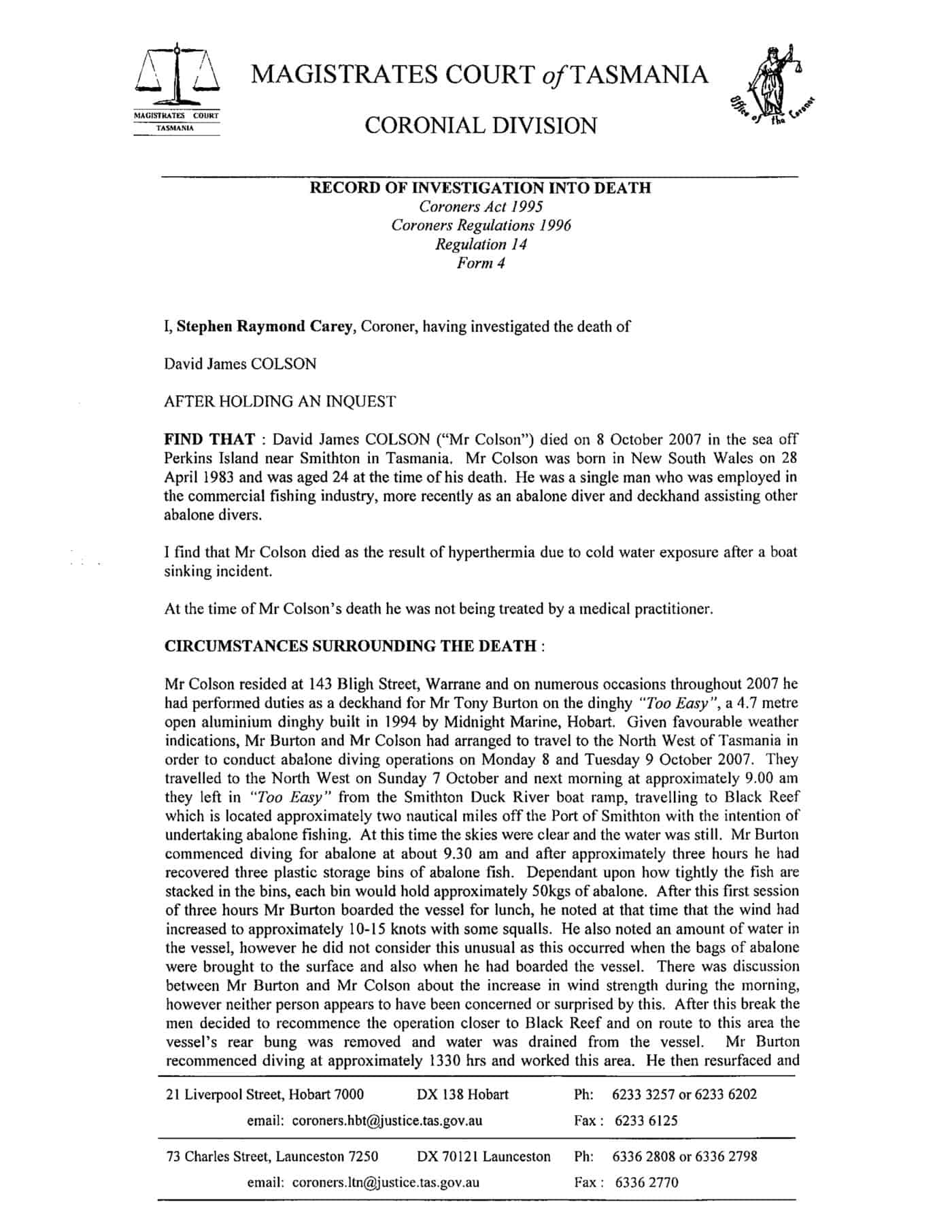On 11 January 2010, the Tasmanian Workplace Relations Minister, Lisa Singh, announced a new safety focus on the abalone industry following the findings of a coronial inquest into the death of David Colson in 2007.
There are several interesting elements to the Minister’s decision. Firstly and, perhaps, most importantly, the decision shows the significant role that Coroners in Australia play in improving workplace safety. For legislative change, it is difficult to see any more effective political motivator.
 Also, the Coroner can express opinions based on evidence in a way that few other courts do. The findings are not yet publicly available. Continue reading “Risk/Reward trade-off”
Also, the Coroner can express opinions based on evidence in a way that few other courts do. The findings are not yet publicly available. Continue reading “Risk/Reward trade-off”
